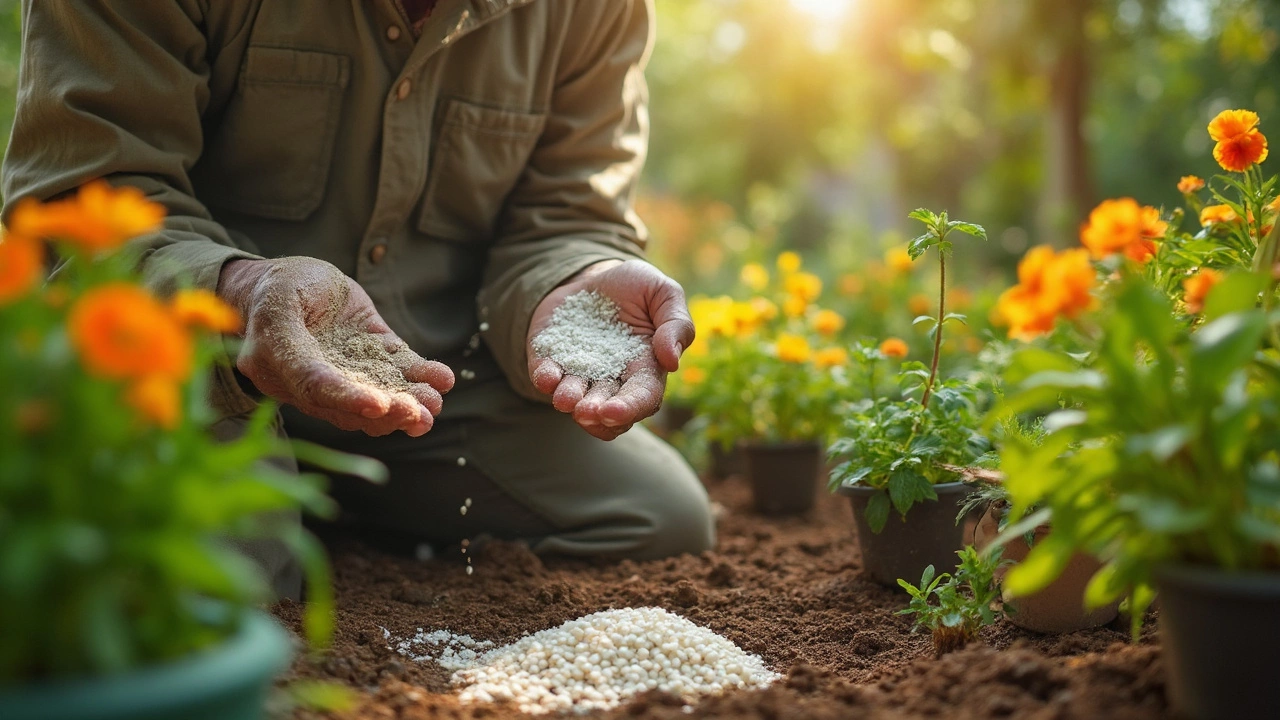Garden Soil Improvement
When working with Garden Soil Improvement, the practice of boosting soil structure, nutrient levels, and water-holding capacity for thriving gardens. Also called soil enhancement, it is the backbone of any successful garden, whether you grow veggies in a raised bed or a flower border on a balcony. Good soil lets roots breathe, feeds plants naturally, and reduces the need for chemical fixes. In India’s varied climates, a few simple steps can turn stubborn, compact earth into a lively medium that supports everything from basil to mango trees.
Key Strategies for Better Soil
The first thing to watch is Soil Moisture, the amount of water held in the soil profile that plants can access. Too dry and roots starve; too wet and they drown. A cheap finger test—push your index finger about two inches deep—tells you if the soil feels like a dry sponge or a damp crumb. For container grow‑ers, the article "Should I Water My Container Garden Daily?" shows why daily watering is a myth; instead, aim for consistent moisture levels that let the soil dry slightly between drinks. Adding a layer of organic mulch cuts evaporation, keeps the temperature steady, and reduces the frequency of watering.
Next up, Compost, decomposed organic material that enriches soil with nutrients and improves texture. A handful of well‑rotted compost mixed into the top six inches works wonders for dry, hard soil, as explained in "How to Rehydrate Garden Soil". It not only adds essential nitrogen, phosphorus, and potassium, but also introduces beneficial microbes that break down organic matter into plant‑ready forms. If you’re short on store‑bought compost, kitchen scraps, tea leaves, and dried leaves make a great DIY mix—just let them decompose for a few months before adding them to the garden.
Mulching goes hand‑in‑hand with no‑till gardening, a technique highlighted in "Why No‑Till Gardening". By leaving crop residues on the surface, you protect the soil from erosion, preserve moisture, and let earthworms work their magic without disturbance. Organic mulches like straw, shredded coconut coir, or even newspaper create a low‑maintenance blanket. They break down slowly, feeding the soil while suppressing weeds. No‑till also means you avoid compacting the soil with heavy tools, which keeps the pore space open for air and water flow.
When it comes to delivering water efficiently, Drip Irrigation, a low‑pressure system that places water directly at the root zone is a game‑changer. The guide "Drip Irrigation Under Mulch: Worth It or Not?" explains how pairing drip lines with a mulch layer maximizes absorption and cuts waste. Install emitters every 12‑18 inches for vegetable rows, connect them to a timer, and you’ll see healthier growth with far less water use. This method also reduces the risk of fungal diseases caused by wet foliage, because the leaves stay dry while the roots stay hydrated.
All these pieces—moisture monitoring, compost addition, mulching, no‑till, and drip irrigation—fit together like a puzzle. By addressing each factor, you create a resilient soil ecosystem that feeds plants naturally and cuts down on extra inputs. Below you’ll find a curated set of articles that dive deeper into each technique, share real‑world examples from Indian gardens, and give step‑by‑step instructions you can start using today.
Can I Use Styrofoam Instead of Perlite for My Garden?
Thinking of using Styrofoam as a substitute for perlite in your garden soil? While both materials help with soil drainage, they have distinct differences. Explore the benefits and drawbacks of each option and find out whether Styrofoam is a viable alternative to perlite. Get practical advice and interesting insights to make the best choice for your plants.
- manufacturing
- India
- food processing
- garden tips
- rice cultivation
- government schemes
- balcony garden
- urban gardening
- balcony gardening
- profitable business
- business ideas
- plastic manufacturing
- drip irrigation
- plant care
- steel manufacturing
- sustainable gardening
- startup ideas
- steel industry
- flower gardening
- textile manufacturers






